Albert Camus, a celebrated French philosopher and writer, has left an indelible mark on the world of literature with his thought-provoking and existential works. Born in 1913 in Algeria, Camus grew up in challenging circumstances, experiencing poverty and loss, which profoundly influenced his perspective on life. He rose to prominence in the 1940s and 1950s as a prominent figure of existentialism, a philosophical movement that grapples with the individual’s search for meaning in an apparently indifferent and absurd universe.
Also Read: Michel Foucault: The Philosopher and Historian
Camus’ Legacy
Camus’s literary genius is characterized by his ability to skillfully blend existential themes with narrative intricacies, captivating readers with stories that challenge conventional norms and provoke introspection. His writing style is marked by clarity, precision, and a deep understanding of human psychology, making his works accessible and engaging to a wide range of readers.
As we delve into the pages of Camus’s works, we find ourselves confronted with the enigmatic notion of the absurd – the idea that life is inherently devoid of ultimate meaning and purpose. This concept, central to Camus’s philosophy, challenges readers to contemplate the significance of their actions and choices in a world where any ultimate meaning remains elusive. It invites us to embrace the ambiguity and uncertainty of existence and find freedom in creating our own values and purpose.
Also Read: The Unorthodox Wisdom of the Philosopher Diogenes
Camus’s literature is not confined to abstract philosophical concepts alone; his books are rich tapestries of human emotions, morality, and societal observations. Through powerful narratives and evocative language, he captures the complexity of the human experience, inspiring readers to reflect on their own lives and choices.
In the following sections, we will explore some of Camus’s most renowned works, including “The Stranger,” “The Myth of Sisyphus,” “The Plague,” “The Fall,” “The Rebel,” “A Happy Death,” “Exile and the Kingdom,” and his personal notebooks. Each of these books offers unique insights into the human condition, providing us with existential insights that resonate with our own journeys through life.
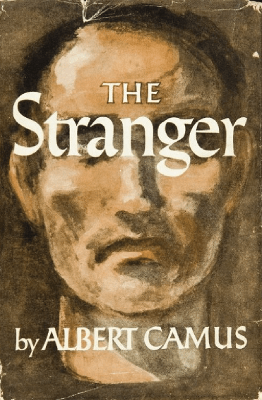
The Stranger (L’Étranger):
In “The Stranger,” Albert Camus introduces us to Meursault, a seemingly detached and unemotional character. Through his life events, Camus explores themes of alienation, existentialism, and the absurdity of human existence. Meursault’s indifference to societal norms and his inability to conform to conventional emotions challenge readers to question the essence of life and the meaning we assign to it.
The novel’s powerful opening line, “Mother died today. Or maybe yesterday; I can’t be sure,” sets the tone for a thought-provoking journey that pushes us to contemplate the significance of human life and our role in an indifferent universe.
The Myth of Sisyphus (Le Mythe de Sisyphe):
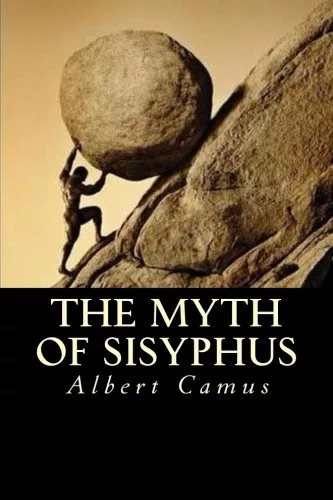
In this philosophical essay, Albert Camus delves into the timeless myth of Sisyphus, condemned to push a boulder up a hill repeatedly in Hades. Camus argues that the struggle itself, rather than any external reward, is what gives life meaning. He famously concludes, “One must imagine Sisyphus happy.”
Camus invites us to embrace the absurdity of existence and find contentment in the act of living, even in the face of seemingly futile tasks. This profound examination of human consciousness challenges us to create our own meaning in a world devoid of inherent purpose, leaving us with the liberating realization that life’s meaning is a product of our own subjective perception.
The Plague (La Peste):

Set in the Algerian town of Oran, “The Plague” is a gripping allegory of the human condition in the face of an epidemic. Albert Camus explores the resilience and camaraderie of ordinary individuals as they grapple with the outbreak. Through the portrayal of selfless acts and the search for hope amidst suffering, Camus highlights the indomitable human spirit.
The novel’s underlying message, “The evil in the world comes almost always from ignorance,” serves as a poignant reminder of the importance of knowledge and empathy in confronting life’s challenges. “The Plague” urges us to embrace our shared humanity and confront the uncertainty of existence with courage and compassion.
The Fall (La Chute):
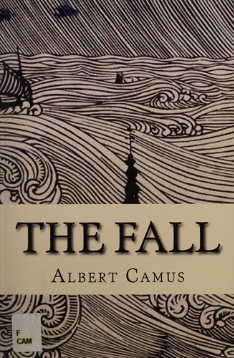
In “The Fall,” Camus presents the confessions of Jean-Baptiste Clamence, a former lawyer, as he unburdens his soul to a nameless stranger in an Amsterdam bar. Through Clamence’s introspective narrative, Camus explores themes of guilt, responsibility, and the human capacity for self-deception. The novel challenges us to reflect on our own moral judgments and confront the darker aspects of our existence.
As Camus writes, “Where there is no hope, it is incumbent on us to invent it.” “The Fall” serves as a haunting exploration of the complexities of human morality and the search for redemption in a world fraught with uncertainty.
The Rebel (L’Homme révolté):
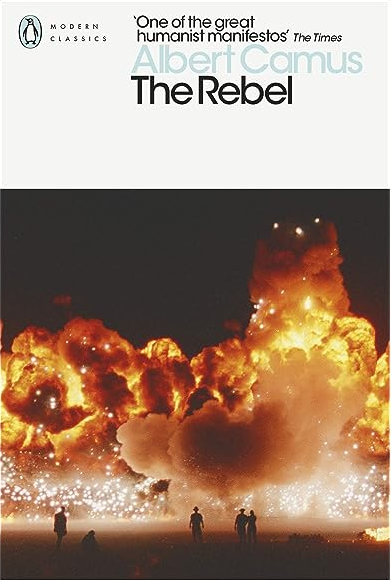
As a comprehensive philosophical work, “The Rebel” delves into the concept of rebellion against oppressive systems. Camus questions the extremes of revolt and nihilism, advocating for a middle ground that embraces freedom without resorting to violence or absolute ideologies. He writes, “The only way to deal with this life is to find one’s passion.”
Camus analyzes historical revolutions and their consequences, urging readers to embrace an existential rebellion that acknowledges the inherent value of human life and seeks justice without forsaking individual liberty. The book’s thought-provoking exploration of rebellion and its consequences serves as a timeless call to embrace our responsibility for creating a just and meaningful world.
A Happy Death (La Mort heureuse):
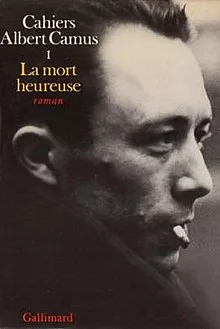
Although published posthumously, “A Happy Death” offers valuable insights into Albert Camus’s early thoughts on life and mortality. The novel follows Patrice Mersault on a journey to seek happiness and fulfillment. Through Mersault’s experiences, Camus explores the pursuit of meaning and joy in the face of mortality.
As Camus poignantly writes, “Life can be magnificent and overwhelming – that is the whole tragedy.” “A Happy Death” challenges us to confront our mortality, prompting us to reflect on the true essence of a fulfilling life and what it means to be truly happy.
Exile and the Kingdom (L’Exil et le royaume):
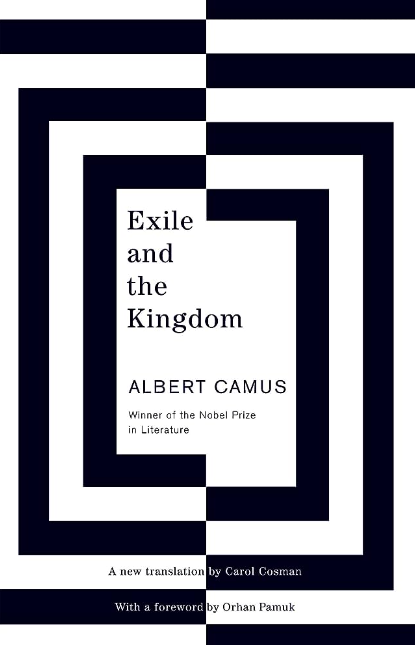
In this collection of short stories, Camus portrays characters facing existential dilemmas and seeking meaning in various contexts. Each story offers a unique glimpse into the complexities of human nature and the quest for belonging. Camus’s exploration of existential themes, love, alienation, and the search for identity, resonates with readers on a deeply personal level.
He writes, “In the depth of winter, I finally learned that within me there lay an invincible summer.” “Exile and the Kingdom” invites us to reflect on our own lives and experiences, reminding us that our journeys toward meaning and connection are fundamental aspects of the human condition.
Conclusion – Albert Camus Books
Albert Camus’s profound literary and philosophical works continue to captivate readers, offering deep insights into the human experience. Through his exploration of existential themes such as absurdity, rebellion, and the pursuit of happiness, Camus challenges us to confront the complexities of existence. His books inspire us to seek meaning, embrace our responsibilities, and find solace in the face of life’s uncertainties. Albert Camus’s enduring legacy lies in his ability to touch our souls, provoking us to contemplate the timeless questions that define the human journey.
Frequently Asked Questions
Albert Camus was a French philosopher, author, and Nobel laureate. He is renowned for his existential philosophy, which explores themes of the absurdity of human existence, rebellion against oppressive systems, and the search for meaning in an indifferent universe. Camus’s literary works, including “The Stranger,” “The Myth of Sisyphus,” and “The Plague,” have significantly impacted both philosophy and literature.
Existentialism is a philosophical movement that focuses on individual existence and the freedom and responsibility of human beings to create their own meaning in life. Albert Camus is considered one of the key figures in existentialism, particularly for his emphasis on the concept of the absurd. His philosophy challenges readers to embrace life’s uncertainties and find authenticity in the face of an indifferent world.
“The Myth of Sisyphus” is a philosophical essay in which Camus examines the absurdity of human existence through the figure of Sisyphus, condemned to an eternity of pushing a boulder uphill only to see it roll back down. Camus concludes that one must imagine Sisyphus happy, as his defiant act of embracing his futile task represents a rebellion against the absurdity of life. This essay underscores the importance of finding meaning in the act of living itself, despite life’s inherent lack of ultimate purpose.
To grasp Albert Camus’s existential philosophy, essential reads include “The Stranger,” where Meursault’s detachment confronts the absurdity of existence; “The Plague,” which explores resilience and camaraderie in the face of crisis; and “The Fall,” where Jean-Baptiste Clamence’s confession challenges readers on morality and responsibility. “The Rebel” is also significant for its examination of the balance between revolt and freedom.
Albert Camus’s philosophy inspires readers by encouraging them to confront life’s challenges with courage and authenticity. Through his literature and philosophical essays, Camus compels us to reflect on the complexities of human existence, the pursuit of happiness amid mortality, and the significance of our actions. His works prompt us to seek meaning and purpose in a seemingly indifferent universe, empowering us to find our own existential insights and embrace life’s uncertainties with a renewed sense of purpose.